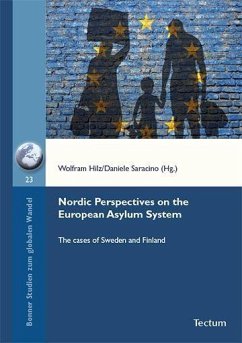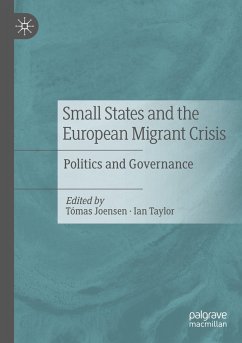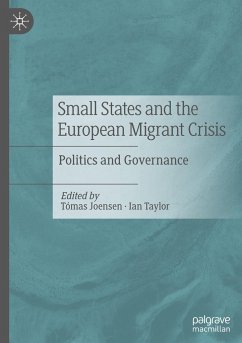
Extending the Common European Asylum System
How the European Union transfers asylum policy to states at its borders
Versandkostenfrei!
Versandfertig in 6-10 Tagen
37,99 €
inkl. MwSt.

PAYBACK Punkte
19 °P sammeln!
With the Central and Eastern European (CEE) enlargement 2004/2007, the external borders of the EU were shifted eastwards. Prior to the accession process, the Central and Eastern European Countries (CEECs) possessed neither border control in its Western European stringent form, nor asylum systems. When preparing for enlargement, the EU and the candidate countries thus had to make sure that with accession, both border protection at the new external borders, and national asylum policies guaranteeing human rights in line with EU commitments were in place. This case study on Bulgaria analyses how a...
With the Central and Eastern European (CEE) enlargement 2004/2007, the external borders of the EU were shifted eastwards. Prior to the accession process, the Central and Eastern European Countries (CEECs) possessed neither border control in its Western European stringent form, nor asylum systems. When preparing for enlargement, the EU and the candidate countries thus had to make sure that with accession, both border protection at the new external borders, and national asylum policies guaranteeing human rights in line with EU commitments were in place. This case study on Bulgaria analyses how asylum policy developed under influence of the European Union during the accession process and beyond. How exactly did the EU influence the candidate state, what was the result of such pressure, and to what degree do the new member state's asylum policies reflect the priorities and contradictions of EU asylum policy?












